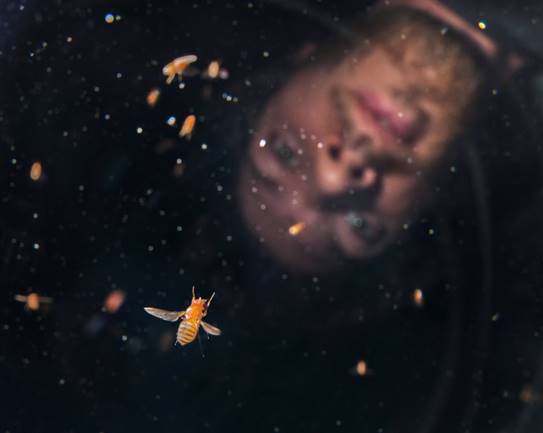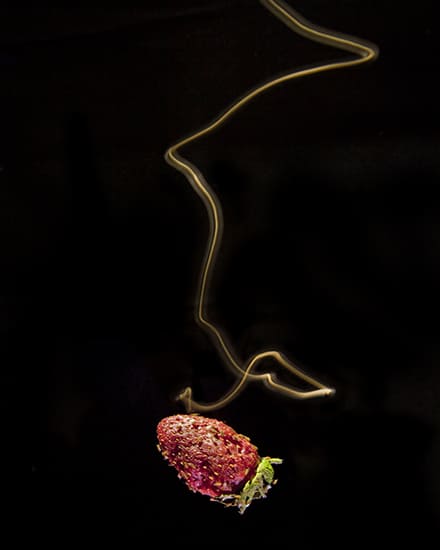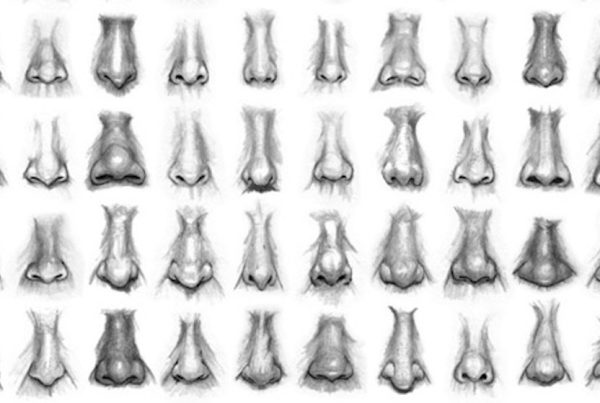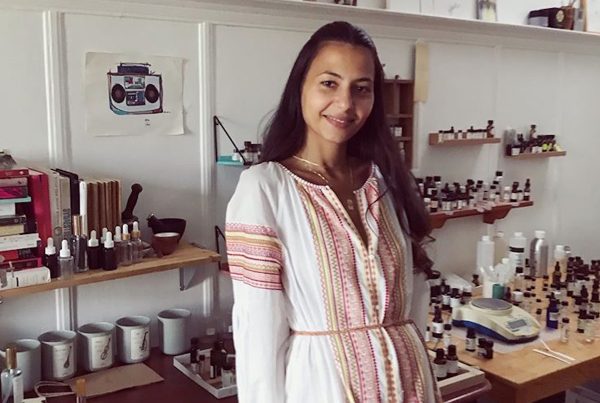“I’m feel very fortunate,” van Breugel said. “Receiving these awards early helps manage the stress of being an assistant professor, and allows me to now focus on doing the science that will lead to more ideas and more puzzles, establishing the course of my career.”
“Building a Universal Theory of Multi-Sensory Integration”
Broadly speaking, van Breugel’s research focuses on sensory integration and seeks to answer the question, “What is the best way to integrate different sensory modalities?” How, in other words, do living beings incorporate visual data, wind sensing, and an array of other sensory details to orient themselves in the world?

To answer these questions, van Breugel has turned his attention to insects. Specifically, using a wind tunnel, he attempts to separate the fruit fly’s response to two specific stimuli: odor and wind. To achieve this goal, he is using optogenetics on genetically altered flies. By modifying a group of neurons to respond to light the way it would respond to odor, van Breugel is able to determine how olfactory stimulation specifically directs the fly’s behavior.
“The research combines engineering with biology,” van Breugel said. “By producing virtual odor experiences independent of wind, we can see exactly what the flies are responding to.”
While the YIP grant — “Building a Universal Theory of Multi-Sensory Integration” — is specifically for basic research, it has strong potential application for the Air Force. Van Breugel explained, “We don’t currently have robotic systems to track odor or chemical plumes. We don’t know how to efficiently find the source of a wind-borne chemical. By isolating odor from wind and understanding how a fly can find the source of an odor, we could theoretically train inexpensive drones to use a similar process to find the source of chemicals and chemical leaks.”
The intersection of biological and engineering systems

Because van Breugel’s research is at the intersection of engineering and biology, it has the potential to provide a multitude of efficient, vital advances in robotics and machine learning that are informed by existing biological systems. If we can train a drone to identify the source of an odor with the same efficiency as a fly, what else can we borrow from the living world for application in the sphere of engineering?
“The questions we are exploring are complicated,” van Breugel said. “When it comes to understanding sensory integration, there is a lot of opportunity at the interface of biological systems and engineering systems. Right now, there is no good engineering solution for odor plume tracking, but even for systems where there are solutions, there are an infinite number of ways to solve the problem. If we understand how different animals solve these problems, we can find more robust, cheaper solutions in engineering systems. There may be other solutions with other advantages that we haven’t yet discovered.”
Before joining the University in January 2019, Van Breugel earned his doctorate at Caltech in 2014 in Control and Dynamical Systems under the support of National Science Foundation and Hertz graduate fellowships while working with Michael Dickinson on insect flight biomechanics, control, and multi-sensory integration. He subsequently went to the University of Washington to work with Jeff Riffell and J. Nathan Kutz as a Postdoc to work on insect search strategies and machine learning approaches to system identification of complex systems, supported by a Sackler Fellowship in Biophysics and a Moore-Sloan-WRF Fellowship in DataScience.
“The research Floris is pursuing combines natural curiosity about the way the world works with an eye toward practical application that has the potential to improve lives,” College of Engineering Dean Manos Maragakis said. “This is what engineers do: they overcome the challenges we all face to provide solutions that advance knowledge and secure a better future for us all. Floris is well on his way to a remarkable career with wide-ranging impact. We are proud of his accomplishments.”
The YIP grant will also provide funding for two graduate students and one postdoctoral scholar to support van Breugel’s lab. In addition to performing research on the project, the postdoctoral scholar will help facilitate the training of researchers and increase the efficiency of the laboratory.













